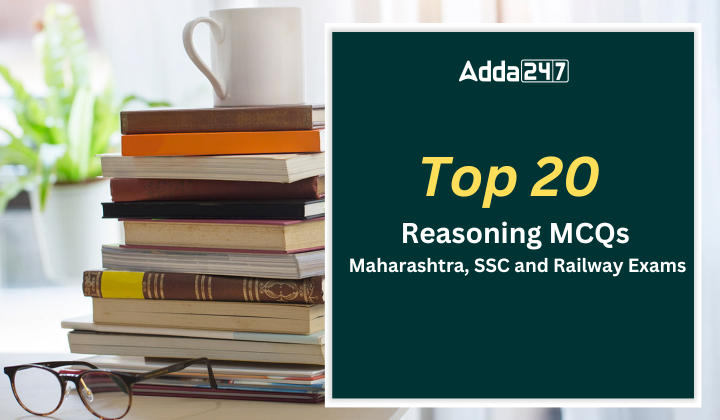Table of Contents
The Maharashtra Police Constable, MPSC, SSC and Railway Exam are crucial examinations that require a comprehensive understanding of various Reasoning topics. To help aspirants prepare effectively, we have compiled a set of 20 competitive-level Reasoning MCQs covering a wide range of subjects.
Top 20 Reasoning MCQs for Maharashtra, SSC and Railway 01 May 2024
These 20 Reasoning Multiple Choice Questions cover a diverse range of topics relevant to the Maharashtra Police Constable, MPSC Exam 2024, SSC and Railway Exam 2024. Use these questions as a tool to assess your knowledge and enhance your preparation for the upcoming examination. Remember to review the explanations and expand your understanding of each topic to ensure a well-rounded preparation. Best of luck!
- How many such numerals are there in the number ‘476589326’ which will remain at the same position when arranged in ascending order from right to left?
(a) More than Four
(b) Four
(c) Two
(d) Three
(e) Zero
Answer: (e)
Explanation:
Given Number: 476589326
Ascending Order: 923456789
No number will remain in the same position. So, option (e) is correct. - If in the number 6547893241, the positions of the first and the second digit are interchanged and the position of the third and the fourth digit are interchanged and so on till the position of the ninth and the tenth digit are interchanged, then which digit will be the sixth from the left end?
(a) 7
(b) 2
(c) 1
(d) 8
(e) 4
Answer: (d)
Explanation:
Given Number: 6547893241
After Interchanging: 5768941324
Sixth from the left end is 8. So, option (d) is correct. - If in the number 9864490235, the positions of the first and the third digit are interchanged and the position of the second and the fourth digit are interchanged and the position of the sixth and the eighth digit are interchanged, then which digit will be the seventh from the left end?
(a) 3
(b) 8
(c) 1
(d) 6
(e) 0
Answer: (e)
Explanation:
Given Number: 9864490235
After Interchanging: 6894940235
Seventh from the left end is 0. So, option (e) is correct. - How many such numerals are there in the number ‘65487349289’ which will remain at the same position when arranged in descending order from left to right?
(a) More than Four
(b) Four
(c) Two
(d) Three
(e) One
Answer: (c)
Explanation:
Given Number: 65487349289
Descending Order: 98765443289
Two numerals will remain in the same position. Therefore, option (c) is correct. - If in the number 5865871475, the positions of the first and the second digit are interchanged and the position of the third and the fourth digit are interchanged and so on till the position of the ninth and the tenth digit are interchanged, then which digit will be the fourth from the right end?
(a) 8
(b) 2
(c) 1
(d) 4
(e) 9
Answer: (d)
Explanation:
Given Number: 5865871475
After Interchanging: 8657584157
Fourth from the right end is 4. So, option (d) is correct. - If 1 is subtracted from each even digit and 2 is subtracted from each odd digit in the number 768943, how many digits will appear twice in the new number thus formed?
(a) Only 3 and 1
(b) Only 5 and 7
(c) Only 1
(d) Only 1 and 7
(e) None of the above
Answer: (b)
Explanation:
Given Number: 768943
After Subtraction: 657831
Digits appearing twice: 5, 7. So, option (b) is correct. - If 1 is subtracted from each odd digit and 2 is subtracted from each even digit in the number 7897697, how many digits will appear twice in the new number thus formed?
(a) Only 6
(b) Only 6 and 8
(c) Only 8
(d) Only 4 and 8
(e) None of the above
Answer: (c)
Explanation:
Given Number: 7897697
After Subtraction: 6786475
Only 8 appears twice. So, option (c) is correct. - How many such numerals are there in the number ‘4685397497’ which will remain at the same position when arranged in ascending order from left to right?
(a) More than Four
(b) Four
(c) Two
(d) Three
(e) One
Answer: (d)
Explanation:
Given Number: 4685397497
Ascending Order: 3456784997
Three numerals will remain at the same position. Therefore, option (d) is correct. - In the number ‘6845782’, if all the even digits are subtracted by 2 and the odd digits are added by 1 then arrange the resultant digits in descending order from left to right. Find the sum of the second digit from the right and the third digit from the left end in the rearrangement?
(a) 3
(b) 0
(c) 5
(d) 8
(e) 9
Answer: (d)
Explanation:
Given Number: 6845782
After Operation: 4626860
Descending Order: 8666420
Sum = 6 + 2 = 8. So, option (d) is correct. - In the number ‘4867954213’, if all the even digits are added by 1 and all the odd digits are subtracted by 1, then arrange the resultant digits in ascending order from left to right. Find the difference between the 2nd and 5th digit from the left end from the new arrangement?
(a) 10
(b) 6
(c) 8
(d) 3
(e) 4
Answer: (d)
Explanation:
Given Number: 4867954213
After Operation: 5978063124
Ascending Order: 0123456789
Difference = 5 – 2 = 3. So, option (d) is correct. - Look at this series: 2, 1, (1/2), (1/4), … What number should come next?
A. (1/3)
B. (1/8)
C. (2/8)
D. (1/16)
Answer: B. (1/8)
Explanation:
This is a simple division series; each number is one-half of the previous number. In other terms, the number is divided by 2 successively to get the next result.
4/2=2
2/2=1
1/2=1/2
1/2/2=1/4
1/4/2=1/8
And so on. - Look at this series: 7, 10, 8, 11, 9, 12, … What number should come next?
A. 7
B. 10
C. 12
D. 13
Answer: C. 12
Explanation:
This is a simple alternating addition and subtraction series. In the first pattern, 3 is added; in the second, 2 is subtracted. - Look at this series: 36, 34, 30, 28, 24, … What number should come next?
A. 20
B. 22
C. 23
D. 26
Answer: B. 22
Explanation:
This is an alternating number subtraction series. First, 2 is subtracted, then 4, then 2, and so on. - Look at this series: 22, 21, 23, 22, 24, 23, … What number should come next?
A. 22
B. 24
C. 25
D. 26
Answer: B. 24
Explanation:
In this simple alternating subtraction and addition series; 1 is subtracted, then 2 is added, and so on. - Look at this series: 53, 53, 40, 40, 27, 27, … What number should come next?
A. 12
B. 14
C. 27
D. 53
Answer: A. 12
Explanation:
In this series, each number is repeated, then 13 is subtracted to arrive at the next number. - SCD, TEF, UGH, ____, WKL
Options:
A) CMN
B) UJI
C) VIJ
D) IJT
Answer: A) CMN
Explanation: The first series involves the first letters only, which are in alphabetical order: S, T, U, V, W. The second series involves the remaining letters, which follow the same pattern: CD, EF, GH, IJ, KL. - B2CD, _____, BCD4, B5CD, BC6D
Options:
A) B2C2D
B) BC3D
C) B2C3D
D) BCD7
Answer: C) B2C3D
Explanation: The letters remain the same, so focus on the number series, which follows a simple progression: 2, 3, 4, 5, 6. Each number corresponds to the position of the letter in the alphabet. - FAG, GAF, HAI, IAH, ____
Options:
A) JAK
B) HAL
C) HAK
D) JAI
Answer: C) HAK
Explanation: The middle letters are static, so focus on the first and third letters. The first letters follow alphabetical order: F, G, H, I, J. The second and fourth segments are reversals of the first and third segments. The missing segment starts with a new letter, hence “HAK.” - ELFA, GLHA, ILJA, _____, MLNA
Options:
A) OLPA
B) KLMA
C) LLMA
D) KLLA
Answer: C) LLMA
Explanation: The second and fourth letters, L and A, remain static. The first and third letters follow alphabetical order, starting with E. Hence, the missing segment should be “LLMA.” - CMM, EOO, GQQ, _____, KUU
Options:
A) GRR
B) GSS
C) ISS
D) ITT
Answer: A) GRR
Explanation: The first letters follow alphabetical order with a letter skipped in between each segment: C, E, G, I, K. The second and third letters also follow a pattern with a skipped letter: M, O, Q, S, U. Hence, the missing segment should be “GRR.”
Top 20 Reasoning MCQs 18 April 2024 – PDF
महाराष्ट्रातील सर्व स्पर्धा परीक्षांसाठी ऑनलाईन क्लास, व्हिडिओ कोर्स, टेस्ट सिरीज, पुस्तके आणि इतर अभ्यास साहित्य खाली दिलेल्या लिंक वर क्लिक करून मिळवा.
अड्डा 247 मराठीचे युट्युब चॅनल
अड्डा 247 मराठी अँप | अड्डा 247 मराठी टेलिग्राम ग्रुप




